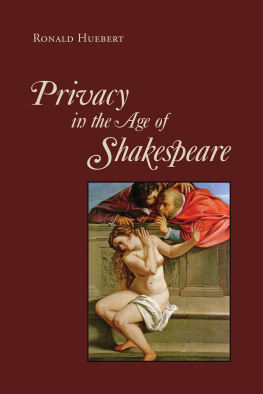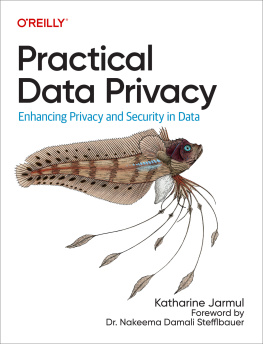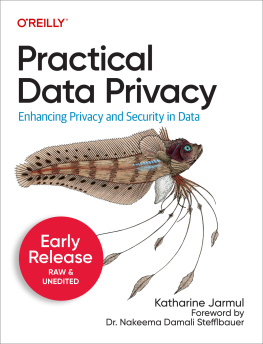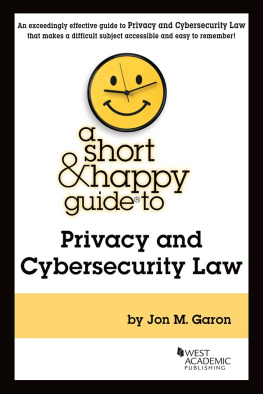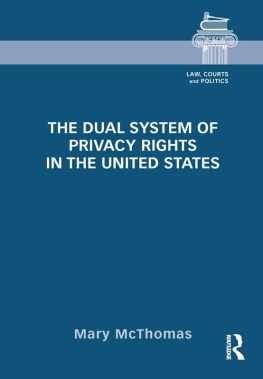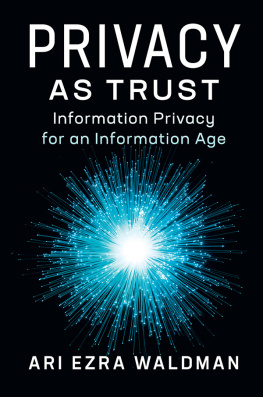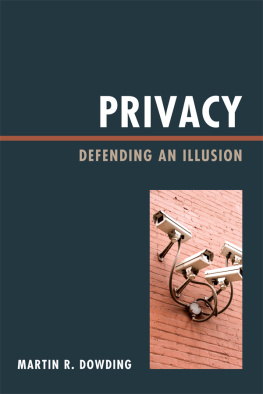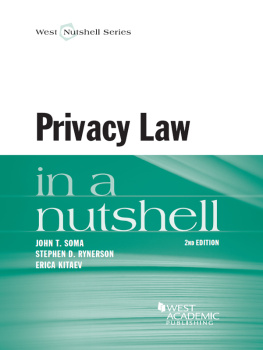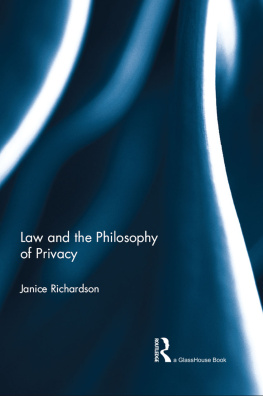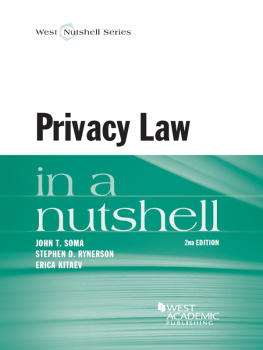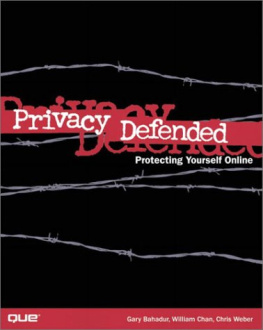Whenever I quote from old-spelling texts, whether in print or in manuscript, usage of i/j, u/v, and long s has been silently modernized. When quoting from printed texts I have likewise corrected obvious typographical errors and expanded archaic abbreviations. When quoting from manuscripts, however, I have tried to retain as much of the idiosyncratic flavour of the source material and to represent it as faithfully as todays typography will allow.
The official reckoning of dates in early modern England was still governed by the Julian calendar, which designates 25 March as the first day of the year. To avoid confusion, I therefore cite dates between 1 January and 24 March as follows: 30 January 1648/9. The slash separates the Julian (Old Style) reckoning from the Gregorian (New Style) now adhered to in most jurisdictions.
Preface
The creation of this book has been supported by Dalhousie University and the University of Kings College, where I regularly practise my craft; by Clare Hall, Cambridge University, where I was a Visiting Fellow in 20078; and by the Social Sciences and Humanities Research Council of Canada, through the award of a Standard Research Grant for the period 20036. A great deal of the material printed here has been ventured orally in many different venues: as matter for discussion in a graduate seminar on Early Modern Privacy at Dalhousie; as informal presentations in an undergraduate seminar on Picture and Poetry in Early Modern Culture at Kings; as talks in the Friday afternoon speaker series in the Department of English at Dalhousie; as conference contributions at meetings of the Canadian Society for Renaissance Studies/Socit canadienne dtudes de la Renaissance, of the Association of Canadian College and University Teachers of English, of the Centre for Seventeenth-Century Studies at the University of Durham, and of the Icons and Iconoclasts Conference at the University of Aberdeen; as contributions to the Arts/Society/Humanities (ASH) Colloquia held at Clare Hall; and as visiting lectures at the University of Saskatchewan and the University of Cork. I must offer collective thanks to the many people who provoked my thinking about privacy on these various occasions by means of their comments and questions; I hope they will continue the dialogue begun orally by reading and commenting on the written text.
In addition, I want to single out people who have supported my work in more than the usual ways. Four scholars have read this book from beginning to end. Two of them are the readers selected by the Press, whose identities are not disclosed to me, but whose comments I have nonetheless found extremely helpful, especially as guides to revision; my book has been positively nurtured by both of them. The other two scholarly readers are Christina Luckyj, my long-term colleague and friend at Dalhousie, and John L. Lepage of Vancouver Island University, a relatively new acquaintance who has rapidly become a close friend and a trusted intellectual ally. Both of these friends read my typescript with unrelenting patience; both saved me from numerous errors, great and small; and both gave me the generous benefit of their critical judgment. In revising my typescript I have not always done exactly what Christina or what John suggested I do, but I have made hundreds of changes in response to their comments, and I remain deeply indebted to them both.
Many other individuals have given this work their generous support. Joanne H. Wright read an early draft of chapter 6 and helped me to improve it. John E. Crowley read a very early version of chapter 5 with similar results. John Baxter repeatedly heard me speak about privacy, an event he further extended by inviting me to address his Shakespeare class. Since John has the rare talent of sharpening the critical focus of everyone he listens to, I am deeply grateful for his many thoughtful responses to my work. David McNeil and I have developed a close working relationship during the last five years, and I have no doubt that this book has profited from our collaboration. Roberta Barker, William Barker, Lyn Bennett, Jennifer Brady, Hlne Cazes, Peter O. Clarke, Judith Rice Henderson, Brenda Hosington, Krista Kesselring, Joseph Khoury, Andrew King, Robert M. Martin, Ian McAdam, Kathryn Morris, Cynthia Neville, Edward Pechter, Dosia Reichardt, Paul Stevens, Tonny van den Broek, Nicholas von Maltzahn, and Roy Wolper have been supportive in many different ways, all of them generous and all of them deeply appreciated. William W.E. Slights offered invaluable encouragement at a time when that was what I most needed. The late Camille Wells Slights took an interest in my work that mattered a great deal to me, and I will never forget our conversations. Michael Ursell proved to me that a research assistant who knows his way around libraries, both virtual and substantial, can make a very great difference indeed. Sharon Brown and Thomas Haggerty provided expert technical assistance with the illustrations. Barbara Porter and James Leahy offered much-needed editorial advice in the months leading up to publication. And Suzanne Rancourt was an exemplary editor at every stage of the process.
Elizabeth Edwards shares my private life, and she too has been deeply supportive of my work, sometimes (I am sure) at the expense of her own. My most heartfelt thanks are to her. The dedication gives the names of our two children, and I considered adding to their names the phrase, whose privacy I have tried to foster. But they are now responsible adults no longer in need of the paternal good I would be claiming to have given. So the gesture of dedicating this book to them can be read as a way of releasing them, of setting them free.
RH
Halifax, Nova Scotia
1 March 2015
Privacy in the Age of Shakespeare
Introduction
Privacy: The Early Social History of a Word
I want to begin with a particular appeal to the idea of privacy, for reasons that will soon become apparent. The circumstances under which the appeal was made can be outlined with some confidence: the time is around 1610 or later, quite certainly within the last five years of the life of Sir John Harington (15601612), the author of the words I am about to quote; the place is the manor of Kelston, in Somersetshire, the country estate to which Harington retired (in about 1607) after it became obvious that his bid for a serious appointment in the court of King James wasnt going to get the results he wanted. At some point in this last phase of his life Harington wrote a prose treatise,

